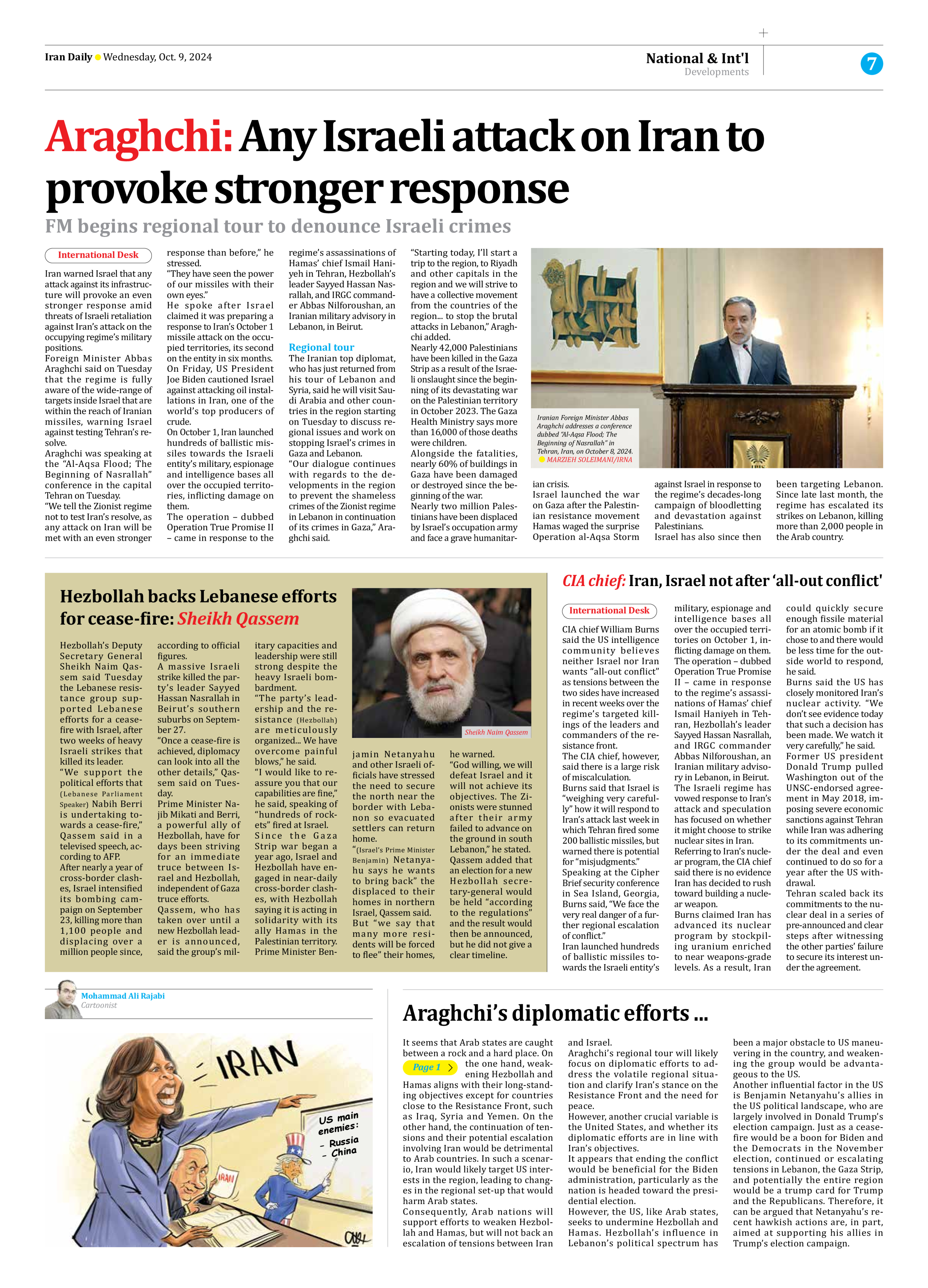
CIA chief: Iran, Israel not after ‘all-out conflict’
CIA chief William Burns said the US intelligence community believes neither Israel nor Iran wants “all-out conflict” as tensions between the two sides have increased in recent weeks over the regime’s targeted killings of the leaders and commanders of the resistance front.
The CIA chief, however, said there is a large risk of miscalculation.
Burns said that Israel is “weighing very carefully” how it will respond to Iran’s attack last week in which Tehran fired some 200 ballistic missiles, but warned there is potential for “misjudgments.”
Speaking at the Cipher Brief security conference in Sea Island, Georgia, Burns said, “We face the very real danger of a further regional escalation of conflict.”
Iran launched hundreds of ballistic missiles towards the Israeli entity’s military, espionage and intelligence bases all over the occupied territories on October 1, inflicting damage on them.
The operation – dubbed Operation True Promise II – came in response to the regime’s assassinations of Hamas’ chief Ismail Haniyeh in Tehran, Hezbollah’s leader Sayyed Hassan Nasrallah, and IRGC commander Abbas Nilforoushan, an Iranian military advisory in Lebanon, in Beirut.
The Israeli regime has vowed response to Iran’s attack and speculation has focused on whether it might choose to strike nuclear sites in Iran.
Referring to Iran’s nuclear program, the CIA chief said there is no evidence Iran has decided to rush toward building a nuclear weapon.
Burns claimed Iran has advanced its nuclear program by stockpiling uranium enriched to near weapons-grade levels. As a result, Iran could quickly secure enough fissile material for an atomic bomb if it chose to and there would be less time for the outside world to respond, he said.
Burns said the US has closely monitored Iran’s nuclear activity. “We don’t see evidence today that such a decision has been made. We watch it very carefully,” he said.
Former US president Donald Trump pulled Washington out of the UNSC-endorsed agreement in May 2018, imposing severe economic sanctions against Tehran while Iran was adhering to its commitments under the deal and even continued to do so for a year after the US withdrawal.
Tehran scaled back its commitments to the nuclear deal in a series of pre-announced and clear steps after witnessing the other parties’ failure to secure its interest under the agreement.







